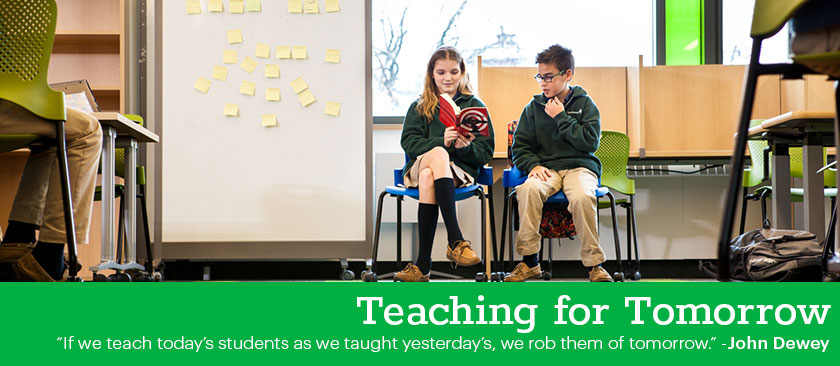The latter part of the old saying, I hear and I forget, I see and I know, I do and I understand, is an important component of progressive education, as there is a strong link between hands-on learning and deep learning.
This principle was evident in a recent Grade 9 Geography class on the rock cycle. In this lesson, students completed activities to develop an understanding of:
- the classification of rocks by type;
- how rocks are formed.
To fully grasp the role of heat and pressure in rock formation, the students took bits of shaved wax crayons and forced them together using small presses. This action produce a form which the students identified as sedimentary rock. They then used foil and small heaters to discover how sedimentary rock transforms into metamorphic rock.
Based on the exit cards collected by teachers, students were able to demonstrate a "solid" understanding of rock formation.






